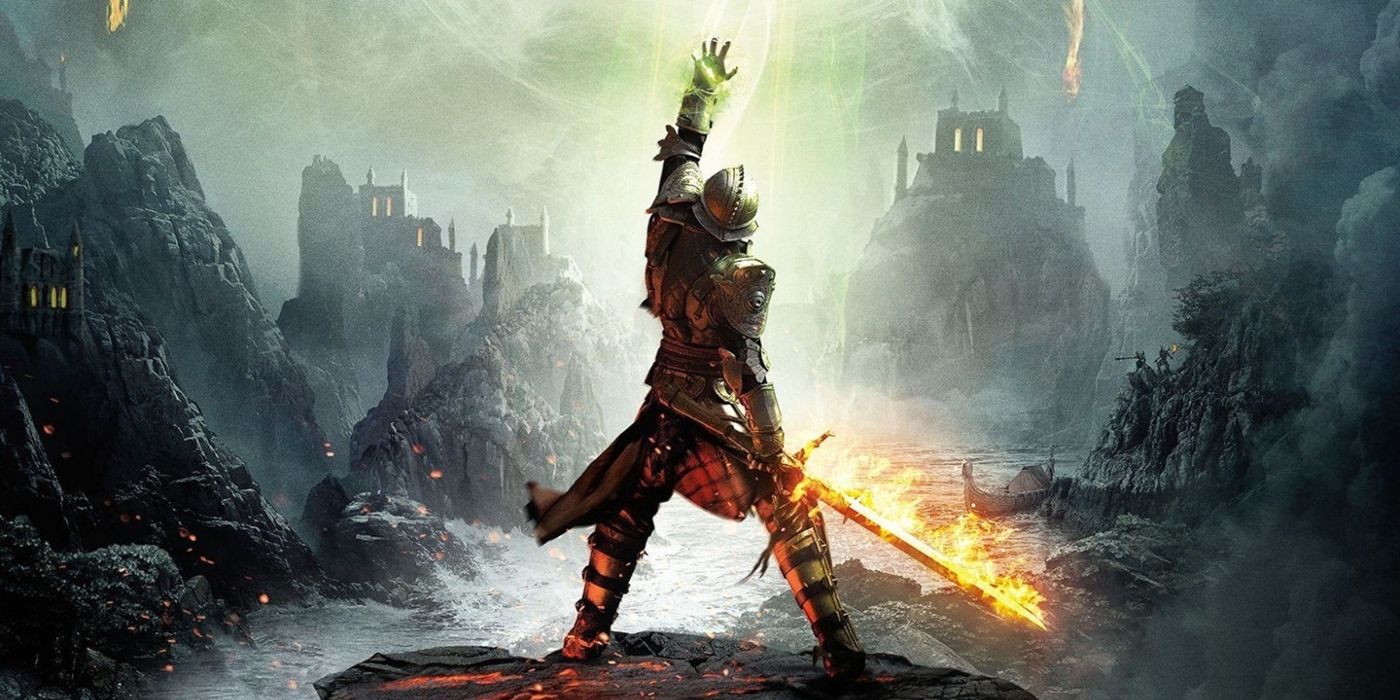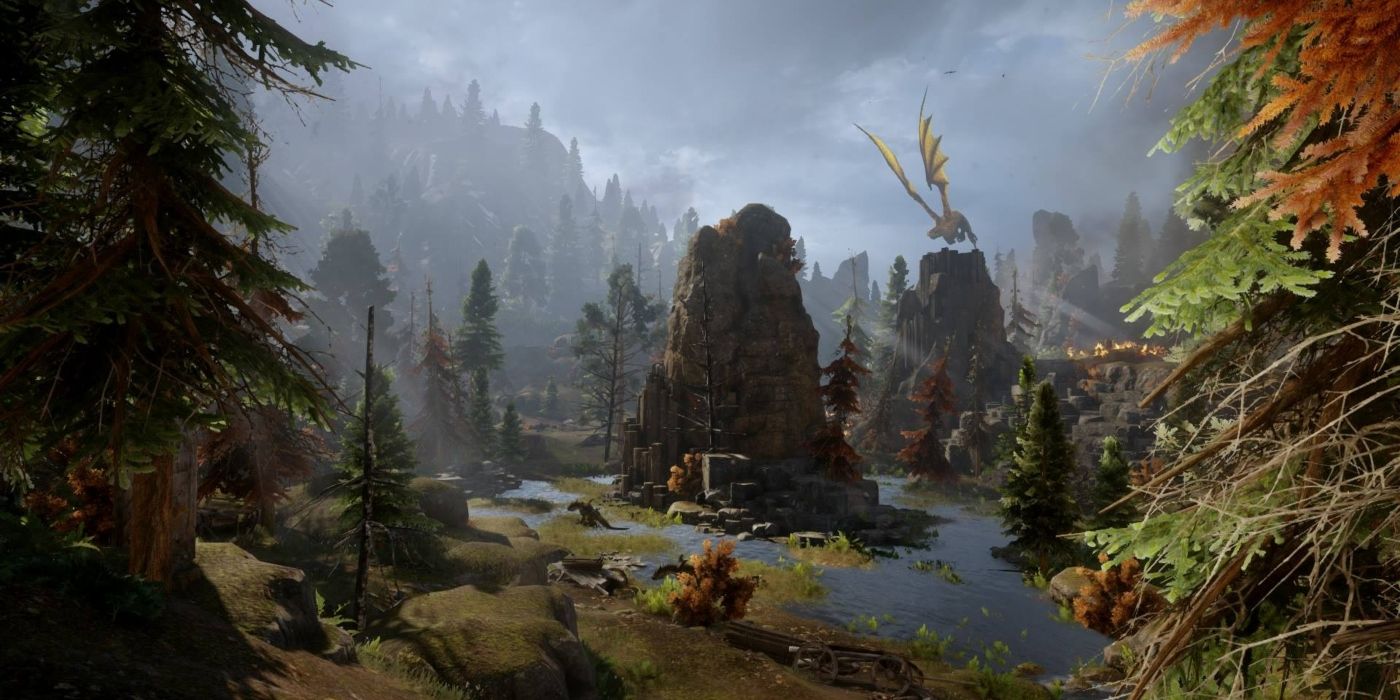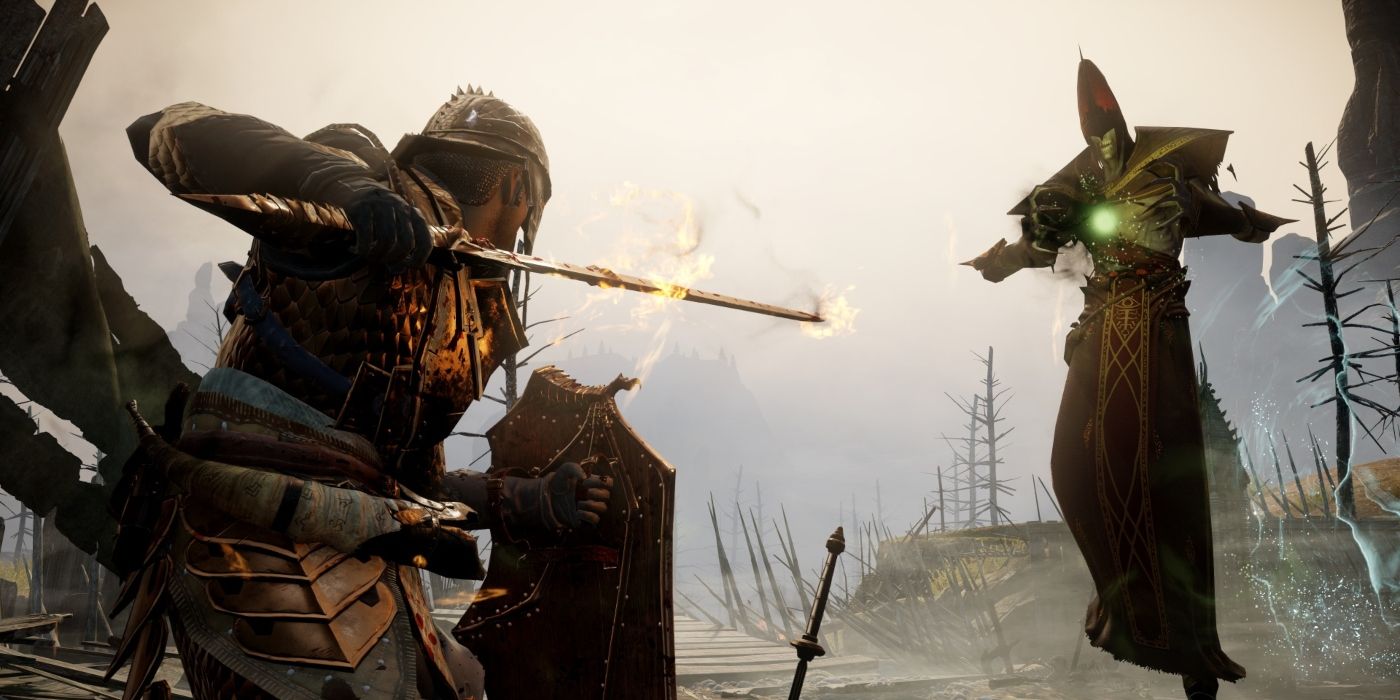A couple of weeks ago, news broke out that BioWare producer, Fernando Melo, who is leading the development of Dragon Age 4, is leaving the studio. Melo has worked for BioWare for 12 years and has since explained that he wanted to take the time to "explore a couple of ideas" for the next chapter in his career.
This isn't the first time that a major Dragon Age developer has left the company for greener pastures. A few years ago, both David Gaider and Mike Laidlaw, who were significant forces behind the franchise also left BioWare. Of course, while these ex-BioWare developers claimed that the series is in good hands, one can't help but imagine if Dragon Age is bound to share the same fate as the Mass Effect franchise.
When Mass Effect was first introduced back in 2007, the game quickly became BioWare's crown jewel, spawning two more titles that completed the original Mass Effect trilogy in 2012. The franchise's formula of a great story, well-fleshed out characters, a captivating romance mechanic, and a smooth and gripping gameplay experience became BioWare's secret to a successful single-player game. Of course, all of these factors that made Mass Effect successful was then carried over to the high-fantasy setting of the Dragon Age franchise.
However, when BioWare released 2017's Mass Effect: Andromeda to mixed-reviews, the studio's reputation quickly spiraled down. Upon Andromeda's release, players were disappointed with the massive bugs that plagued the game, especially the weird facial animations that made it a laughing stock in the gaming industry. Due to the growing negative reception, BioWare announced two months after Andromeda's release, that the Mass Effect franchise will be put on hiatus, but it later clarified that the series is not done.
So what exactly happened at BioWare that led to the poor development of Mass Effect: Andromeda? In an article written by Kotaku's Jason Schreier, it was revealed that while BioWare had five years to develop the game, several obstacles such as pinning down the title's core concept and problems with the Frostbite engine took up the majority of the game's development. The bulk of its content was made in 18 months, forcing the developers to scramble the story, quests, dialog, and combat in a short period of time.
Mass Effect: Andromeda's troubled development was soon carried over to BioWare's 2019 title, Anthem. Just like Andromeda, BioWare had a long time to develop the game, roughly about 7 years, but again, the bulk of its content was made in the last 18 months of development. This put enormous pressure on every single member of the team that is working on the game. As a result, Anthem was also received with mostly-negative reviews, giving BioWare two "flop" titles that further tarnished its reputation.
Looking at the story behind Mass Effect: Andromeda and Anthem, it is apparent that the root of the problem here is the crunch-culture that has developed within BioWare, to which some developers claim has affected their stress levels and overall mental health. Following the controversy that surrounded Anthem's release, BioWare issued a statement saying that the well-being of its employees has always been a top priority for the company. The studio also explained that it has since taken internal feedback to heart and is now focusing on avoiding crunch time altogether.
Making games, especially new IP, will always be one of the hardest entertainment challenges. We do everything we can to try and make it healthy and stress-free but we also know there is always room to improve.
So after the troubled development of both Mass Effect: Andromeda and Anthem, is Dragon Age bound to share the same fate? Of course, it all boils down to how committed BioWare is in changing the crunch-culture that has plagued the development of its past two titles. If things remain as they are, and if the bulk of the game is again rushed in a short period of time, then things may end just as badly, if not worse for BioWare.
Apart from a healthy work environment, another important factor to consider is the leadership of the key people working on the upcoming Dragon Age game. Unfortunately, several developers including those mentioned earlier have already departed BioWare to pursue other projects, which may be a little bit troubling. Of course, it is too early to pass judgment on whether the game will be a success or not, given that we haven't really seen anything at the moment, so there is still a good chance that Dragon Age 4 will prevail.
We hope that the drama that surrounded BioWare's last two games will serve as a wake-up call for the studio, and its publisher EA, that things need to change. While we do know about the primary reasons that led to the negative reception of Andromeda and Anthem, it is likely that we still don't know the whole story. Hopefully, fans of the Dragon Age franchise won't have a preconceived notion that the game will turn out bad. Of course, we can't blame them for being skeptical after Andromeda and Anthem, but it would probably be best to give BioWare a chance, especially since we haven't seen anything significant from Dragon Age 4 yet.
In the end, we are still rooting for BioWare and believe in the studio's capability to deliver a game that Dragon Age fans deserve. While it had its misses in the last few years, BioWare was still behind some of gaming's most beloved franchises. Here's to hoping that the release of Dragon Age 4 sometime in the future would mend the studio's reputation, and see its return to its former glory.



